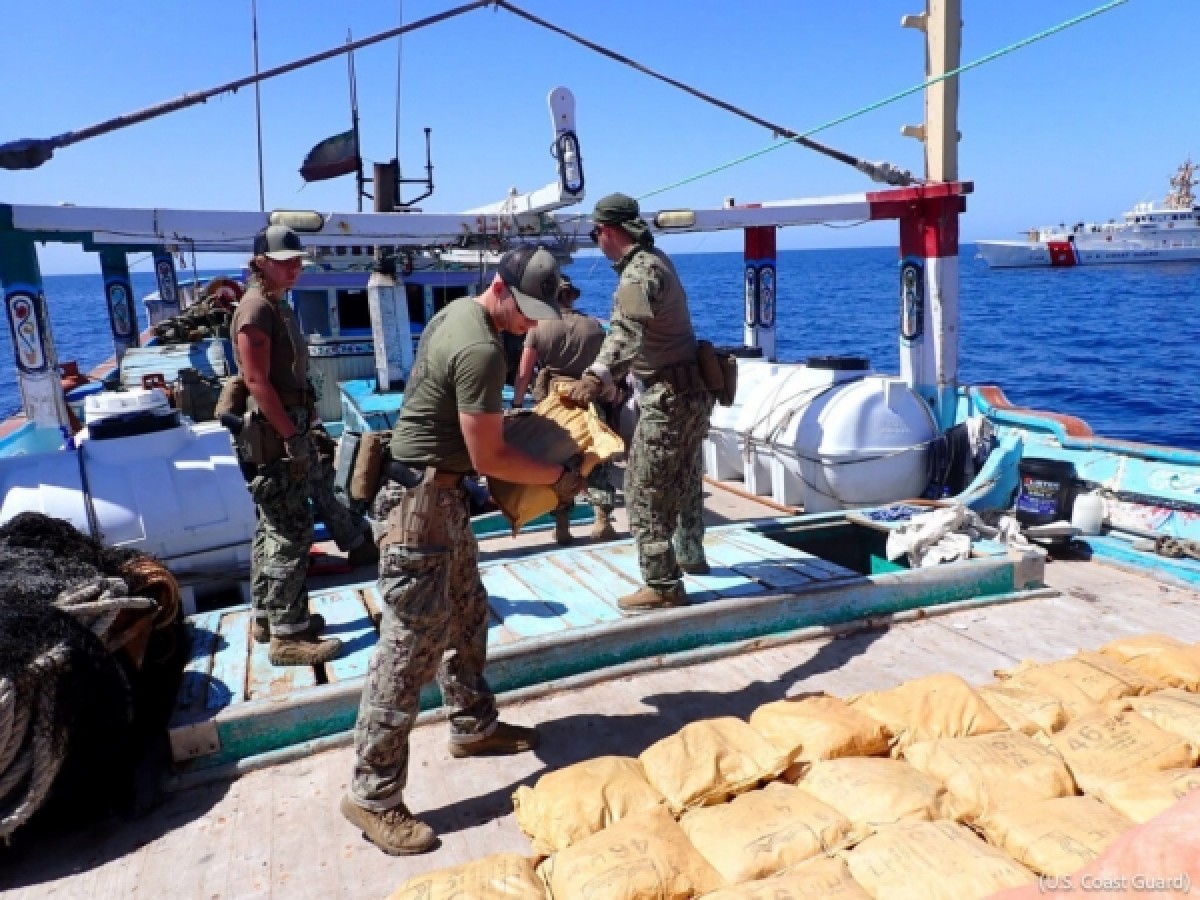American report: The lucrative drug trade funds Houthi violence in the region


An American report said that Houthi militants in Yemen are financing their attacks in the Red Sea through international drug smuggling operations that destabilize the country and spread insecurity throughout the Middle East.
A report issued by the US State Department's "Share America" website stated that over the past year, the Iran-backed Houthis have gained a bad international reputation due to their attacks on shipping and civilian shipping lines and their disruption of global trade. However, what many do not know is that the Houthis finance their violence through lucrative drug smuggling and distribution operations.
The report said that in January, drug smugglers transporting shipments of Iranian-made weapons to Yemen were arrested in the Arabian Sea, highlighting the interconnected nature of illegal operations. Noting that the Organization for Economic Cooperation and Development warned that the illicit drug trade is a major source of income for the Houthis and their allies.
OECD reports indicate that Houthi-controlled areas in Yemen have become open drug markets. The area is filled with thousands of kilograms of illegal drugs such as Captagon (a form of methamphetamine), hashish, and heroin.
According to the report, the Houthis use drug profits to buy weapons and pay the salaries of fighters, while exploiting young addicts as disposable foot soldiers on the front lines of their attacks against Yemenis and international shipping ships.
The Global Initiative Against Transnational Organized Crime, a Geneva-based NGO, reported that “the Houthi militia oversees the lucrative heroin trade,” and continues to control the cannabis trade as a source of financing and a recruitment tool.
According to the report, drugs directly fuel the violence practiced by the Houthis.
He said that the Houthis use drugs to recruit and control young people and children, as they use drugs to increase loyalty and dependence. The Houthis give their fighters Captagon before fighting to increase their energy and level of aggression.
He added, "This violation not only fuels conflict, but also contributes to social collapse in Yemen, with devastating consequences for the youth and the future of the country."
In awareness of the seriousness of the threat posed by drug smuggling by the Houthis, the American website said that international efforts have been intensified. Over the past few years, naval forces patrolling the Arabian Gulf, the Red Sea and the Indian Ocean have confiscated quantities of illicit drugs destined for Yemen. The region is valued at more than one billion dollars. It is worth noting that the Joint Naval Forces are a maritime partnership that includes 44 countries that work to protect sea lanes and stop smugglers, terrorists and other criminals.
He stressed that this drug smuggling is linked to Iran's extensive drug production and distribution networks throughout Syria and the wider Middle East.
According to the report, the United States and its partners have imposed sanctions on key individuals and companies involved in this drug trade, and continue to work with local organizations and communities to combat the drug scourge. However, there is still a lot to be done.
The American website concluded that, with the Houthis insisting on continuing their violent attacks against innocent civilians and continuing to abuse the Yemeni people, international cooperation is crucial to restoring freedom of the seas.